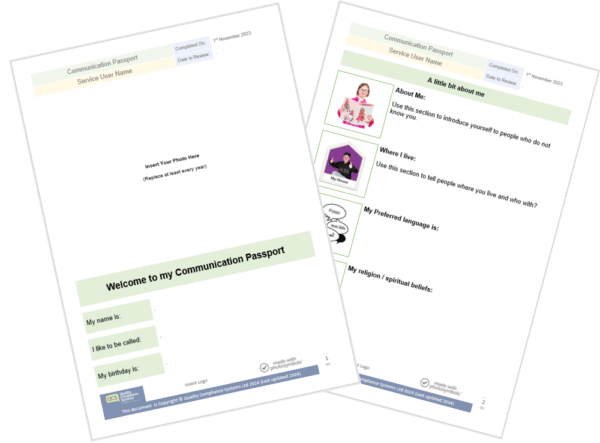It’s crucial for all social care professionals to understand how to effectively communicate with service users, including individuals with learning disabilities or autism. Clear and respectful dialogue is essential for providing quality care and support.
We recognise the importance of ensuring communication between you and service users. That’s why we created the QCS Communication Passport. Specifically designed for individuals with communication challenges, use it to improve communication and understanding.
Using it will not only benefit your service users but also provide evidence against the new single assessment framework key questions as well as the Accessible Information Standard.
Why Choose the QCS Communication Passport:
Tailored Support: The QCS Communication Passport provides comprehensive information about a service user’s communication needs, preferences, and strategies. This allows you to provide personalised support.
Minimising Misunderstandings: By offering guidance on effective communication strategies, the passport helps minimise misunderstandings and frustration, increasing positive interactions between you and service users.
Promoting Independence: Empowering service users to express their needs and preferences, the passport promotes independence and enablies individuals to participate more actively in their care.
How to Use the QCS Communication Passport:
Customisation: Tailor the passport to the specific needs, preferences, and abilities of the service user.
Sharing: Share the passport with relevant individuals and organisations involved in the individual’s care.
Regular Updates: Regularly update the passport to reflect any changes in the service user’s needs and preferences, ensuring it remains an accurate and up-to-date resource.
By using the QCS Communication Passport, social care professionals can improve the quality of care provided to service users and demonstrate compliance with regulatory requirements.
Health and Social Care Act 2008 (Regulated Activities) Regulations 2014


